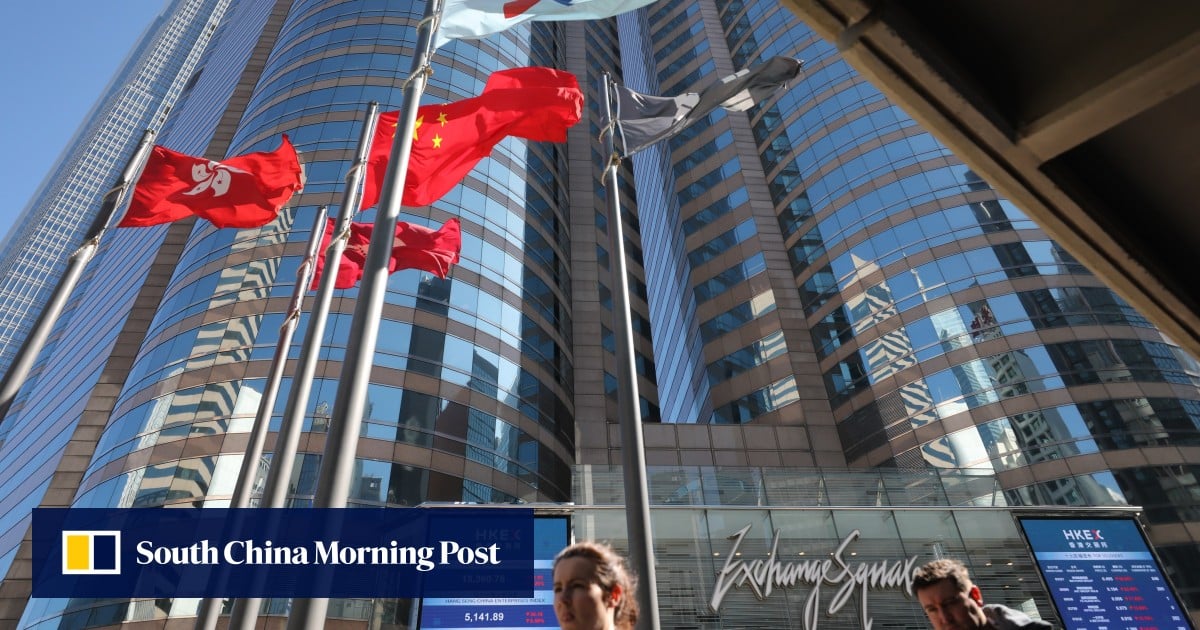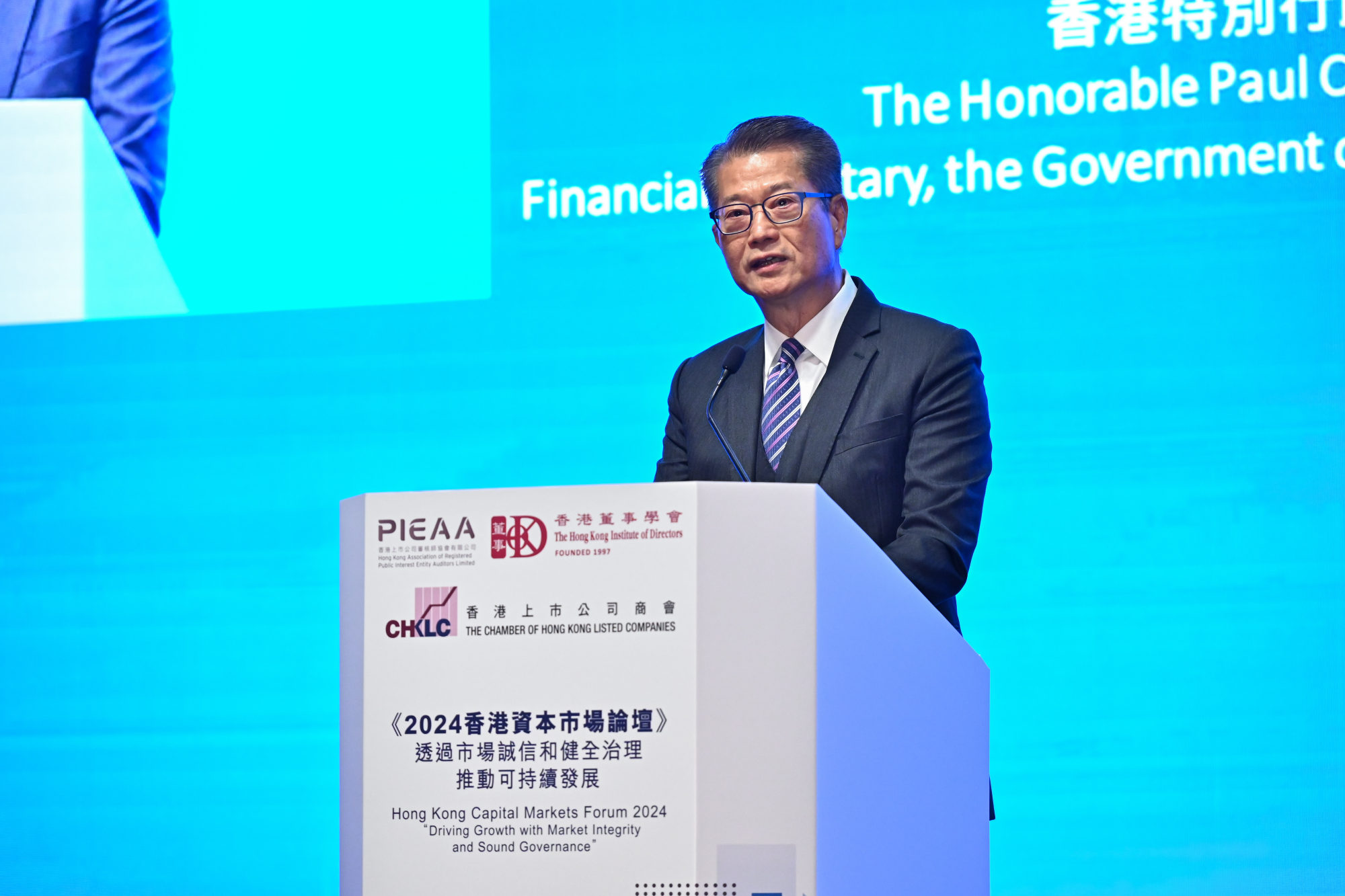
30 Jan Hong Kong eyes moves to attract IPOs of mainland Chinese, Middle Eastern firms to spur stock market, Paul Chan says
Hong Kong will encourage more companies from mainland China, Middle East and Southeast Asia to list in the city as part of the government’s initiative to revive its sluggish financial market, according to Financial Secretary Paul Chan Mo-po.
The government is actively engaging with regulatory authorities on the mainland to expedite the approval process for companies listing in Hong Kong, Chan said at the Hong Kong Capital Markets Forum on Tuesday.
The aim is to continue revitalising Hong Kong’s financial market, he said at the forum, where participants from the finance industry, government agencies and academia discuss the prospects of the city’s markets, and explore policies and methods to attract domestic and international investors.
“The focus is to attract more high-quality mainland and international companies to list and raise funds in Hong Kong.”

Hong Kong will also strengthen connectivity with mainland markets and reinforce its role as an offshore yuan hub, Chan said.
Hong Kong stocks drop in worst January since 2016 amid BYD miss, China data
Hong Kong stocks drop in worst January since 2016 amid BYD miss, China data
A yuan counter will be added to the Southbound Stock Connect platform, allowing mainland investors to directly buy Hong Kong stocks using the currency.
The government will also roll out new measures to attract family offices and high-net-worth individuals, as well as bolster asset and wealth management businesses, he added.
The city’s capital market has been under pressure because of China’s economic slowdown, “higher for longer” interest rate environment and rising geopolitical tensions.
As Hong Kong’s capital market is highly connected to both the international and mainland markets, it has inevitably been affected and experienced some fluctuations in recent times, Chan said.
“There are challenges and opportunities in the future, and the key lies in how we grasp and utilise our unique advantages effectively,” he said.
